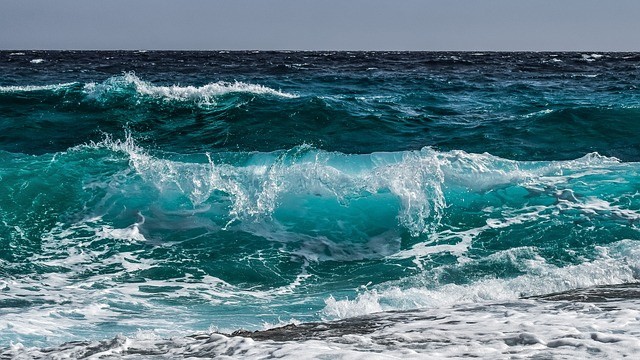Since the accurate measurements of ocean temperatures began in the mid-20th century, the sea surface temperature has continued to rise. With human-induced climate change, things are only going to get worse shortly. But even if humans continue to release greenhouse gases into the atmosphere, could the Earth's oceans ever get so hot that they begin to boil?

Could Earth's Oceans Boil Away?
According to experts, humanity's current practices could likely never heap the planet enough to boil our oceans away. According to climate scientist Zeke Hausfather from temperature data analysis nonprofit organization Berkeley Earth, we would not get nearly that warm even if we burn all known reserves of fossil fuels.
Greenhouse gases such as carbon dioxide and methane raise the temperatures of the Earth by trapping the Sun's energy in the atmosphere and on the surface instead of allowing it to radiate away into space. The ocean's surface absorbs almost 93% of this extra heat. Since water is thicker than air, it can absorb much heat. The ocean's top 2.5 meters (8.2 feet) holds the same amount of heat as the entire blanket of atmosphere above it.
This heat rapidly mixes through the top 330 feet (100 meters) of water in the "mixed layer" region. Because of this region, the heat takes much longer to reach farther down, although recent observations reveal that temperatures are rising even in the deepest realms of the ocean.
Theoretically, the Earth's oceans may get hot enough to start boiling. As the water gets warm, the molecules vaporize from the ocean's surface all the time. Water vapor is a greenhouse gas, so more atmospheric water will create a feedback cycle that could lead to a hotter planet.
Something similar was thought to have happened on Venus in the past, causing its oceans to boil away. But since the Earth is farther from the Sun than Venus is, it would require more greenhouse gas for our planet to reach that dismal point.
In a study published in 2013, Colin Goldblatt and colleagues suggested that to induce this "runaway greenhouse" effect, our planet would need carbon dioxide that measures about ten times greater than what could be emitted from burning all known gas, oil, and coal reserves.
Other Factors Affecting Ocean Evaporation
Artificial activity is not the only factor that can negatively affect our oceans. In the future, the Sun will reach the end of its life and will begin to expand outward as a giant red star. In the next 7 billion years, the Earth's surface temperature will gradually rise, according to astronomer Robert Smith from the University of Sussex.
In 2008, Smith and his colleagues calculated how Earth would end. However, exactly when the oceans will begin to boil was hard to pin down. Instead, this ocean vaporization could happen around 1 billion years from now, with much uncertainty. At that point, humans might have stopped adding greenhouse gases to the atmosphere.
RELATED ARTICLE : Hotter Oceans Fueling Aggression in Sharks; Scientists Warn as Record Temperatures Are Reached Due to Worsening Climate Change
Check out more news and information on Oceans in Science Times.










